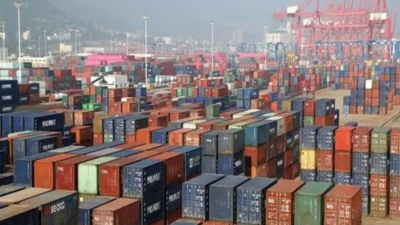India’s crypto market shifts gear: Trade in Futures outpaces spot transactions; TDS law, rising prices fuel surge

A major shift can be seen in India’s cryptocurrency market, with futures trading volumes on local exchanges now surpassing spot transactions by more than threefold. According to Economic Times, industry executives and legal experts attribute the surge to the recent upswing in crypto prices, leverage-driven profit opportunities, and the ability to bypass the steep tax deducted at source (TDS) and flat 30 per cent profit tax applied on spot trades. Futures trading enables investors to take positions worth 10–50 times their initial capital, compared to stock futures’ lower leverage ratios. Some overseas platforms even permit up to 100 times leverage. The acceptance of Indian rupee margins by domestic platforms has further accelerated the shift in recent months. Unlike international exchanges that require stablecoins such as USDT for margins, Indian platforms accept rupee deposits, convert them into USDT, and place counter positions with large global players like Binance to access deeper liquidity. Though exchanges disclose little about daily turnover, industry estimates peg volumes at $3–5 million for each leading platform. Executives confirm that in recent months, futures volumes have consistently outpaced spot trades, prompting platforms to actively promote derivatives through social media and OTT advertising. A key factor is taxation. Spot crypto sales attract 1 per cent TDS on every transaction and a flat 30 per cent profit tax. Futures trades, however, do not involve an actual transfer of virtual digital assets (VDAs) and therefore avoid both. “When the margin for a VDA futures is denominated in INR, the profits or losses are determined by the underlying price movement. But the investor neither buys nor sells the VDA itself. TDS under section 194S applies to the transfer of VDAs, which is not involved in futures,” said Purushottam Anand, advocate and founder of Crypto Legal, as quoted by ET. Exchanges incur TDS only once when INR margins are first converted to USDT. The same USDT can support multiple trades without fresh TDS liability. Anand added that, on similar grounds, “even the 30 per cent crypto tax under section 115BBH does not apply to these transactions.” Many traders reportedly classify such gains as “income from other sources,” and in some cases use family members’ accounts in lower tax brackets. With no formal regulations in place, exchanges are not mandated to disclose volumes. Cryptocurrencies are neither defined as currency nor as securities, leaving VDAs and their derivatives in a tax grey zone. Some Indian exchanges have recently expanded into crypto options trading as well. The Central Board of Direct Taxes has sought legal clarity on issues relating to derivatives, cross-border VDA transactions and the definition of VDAs, signalling possible moves towards a clearer regulatory framework.





